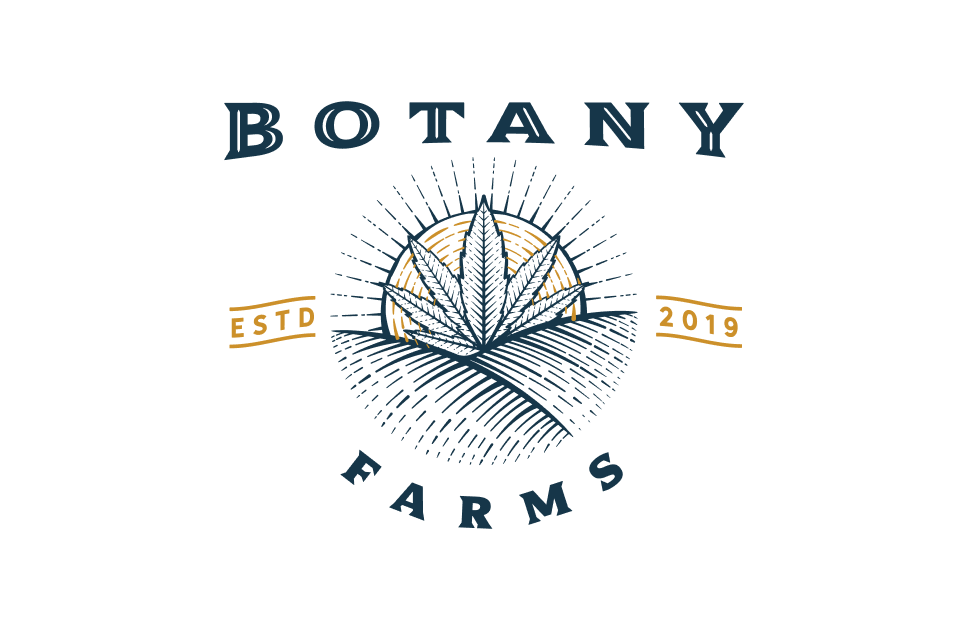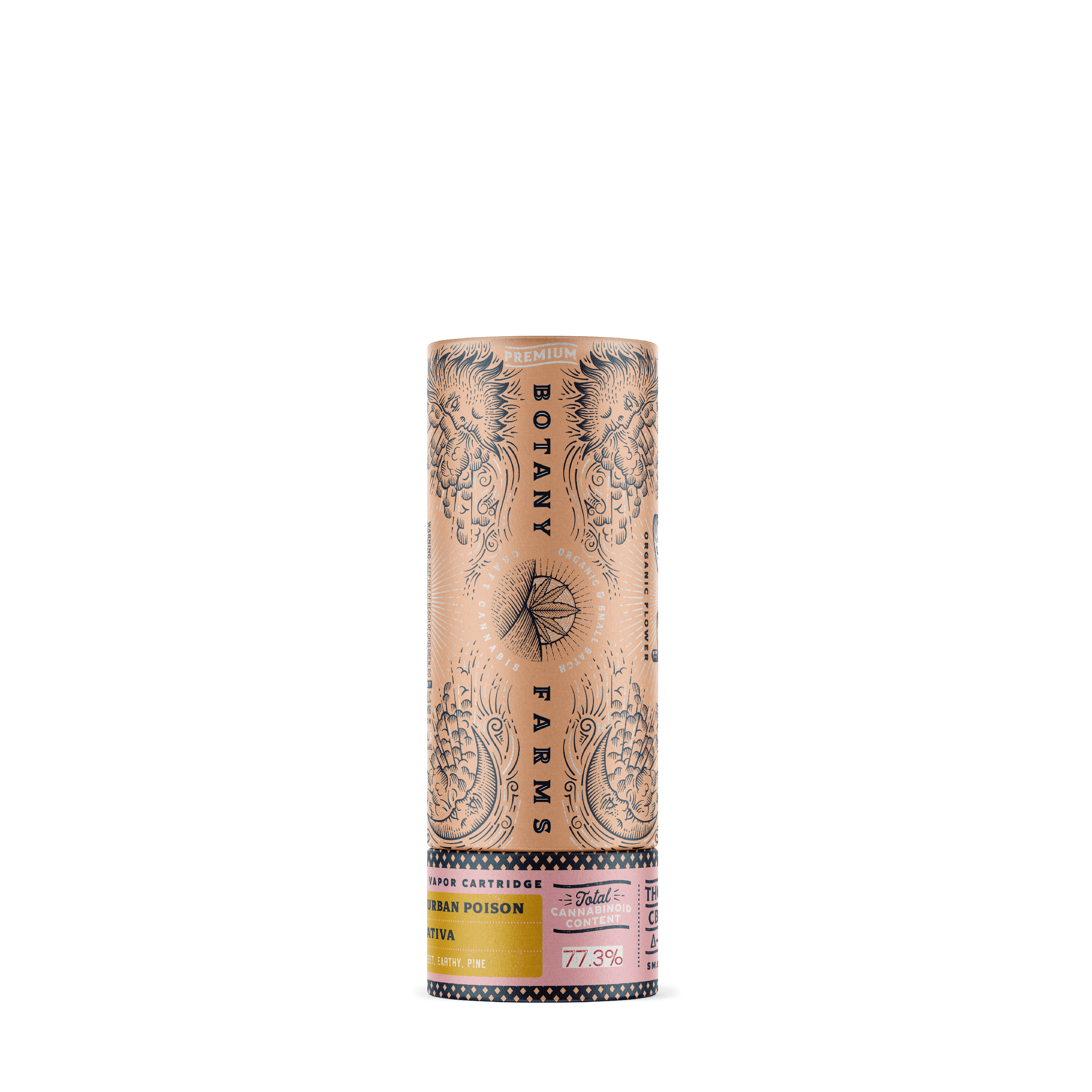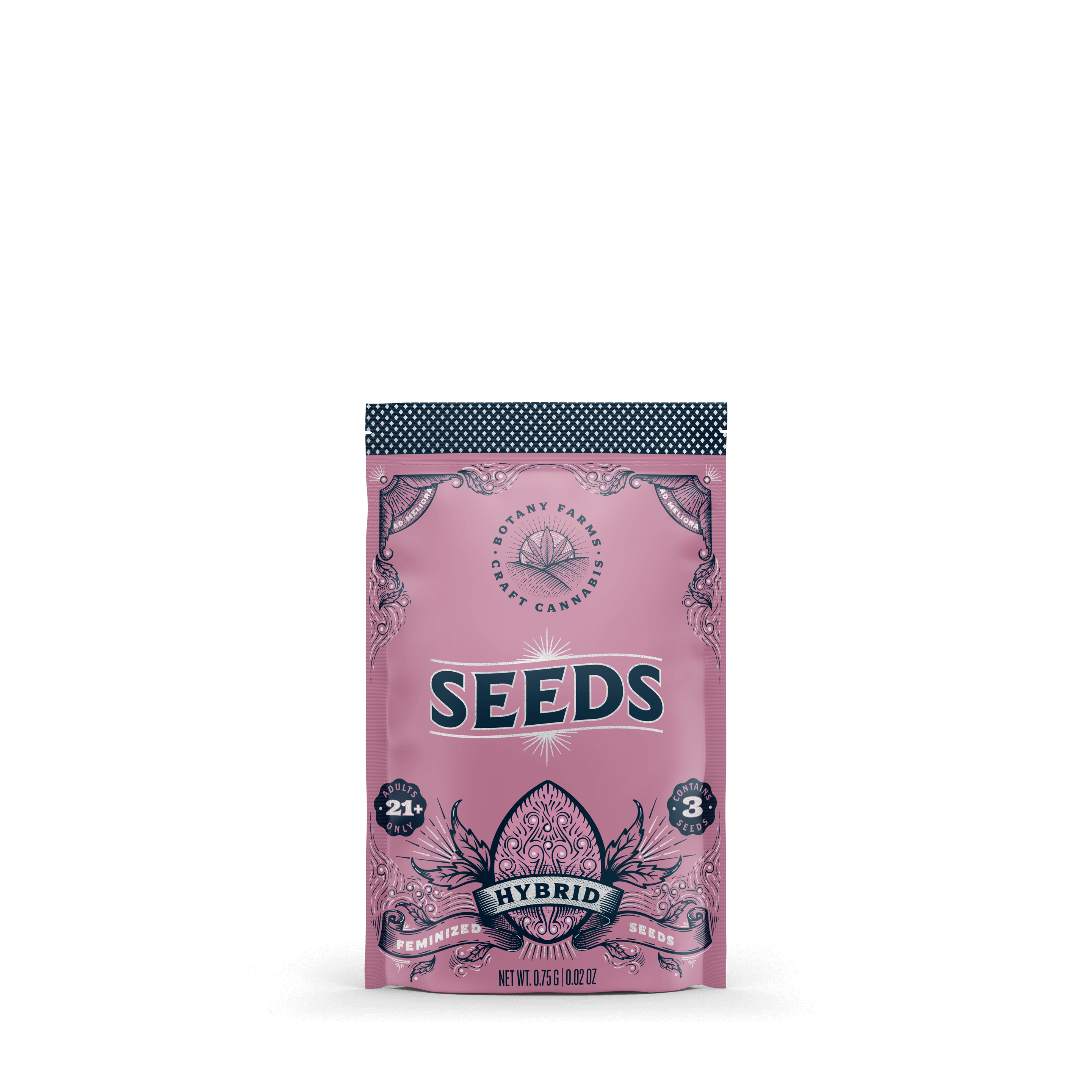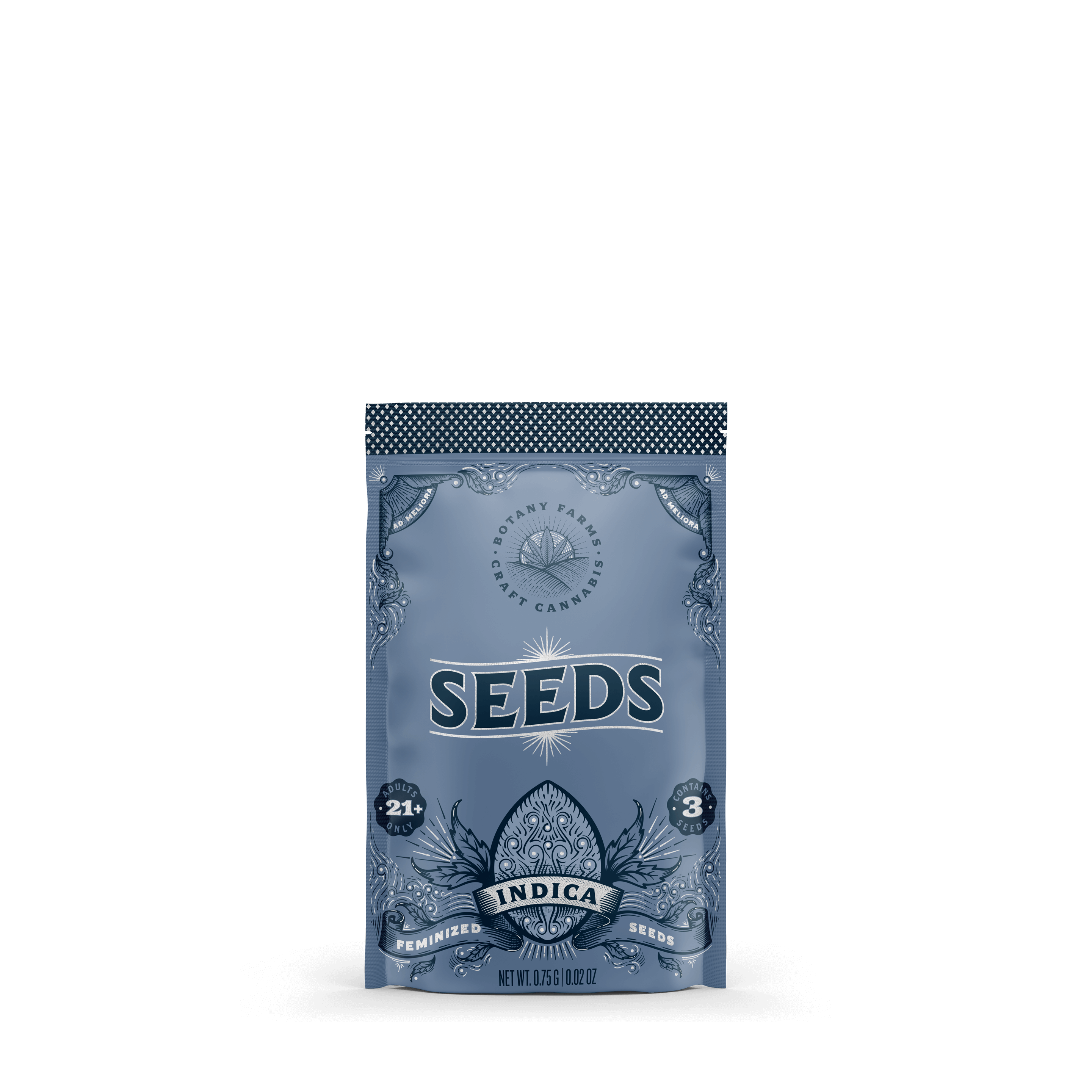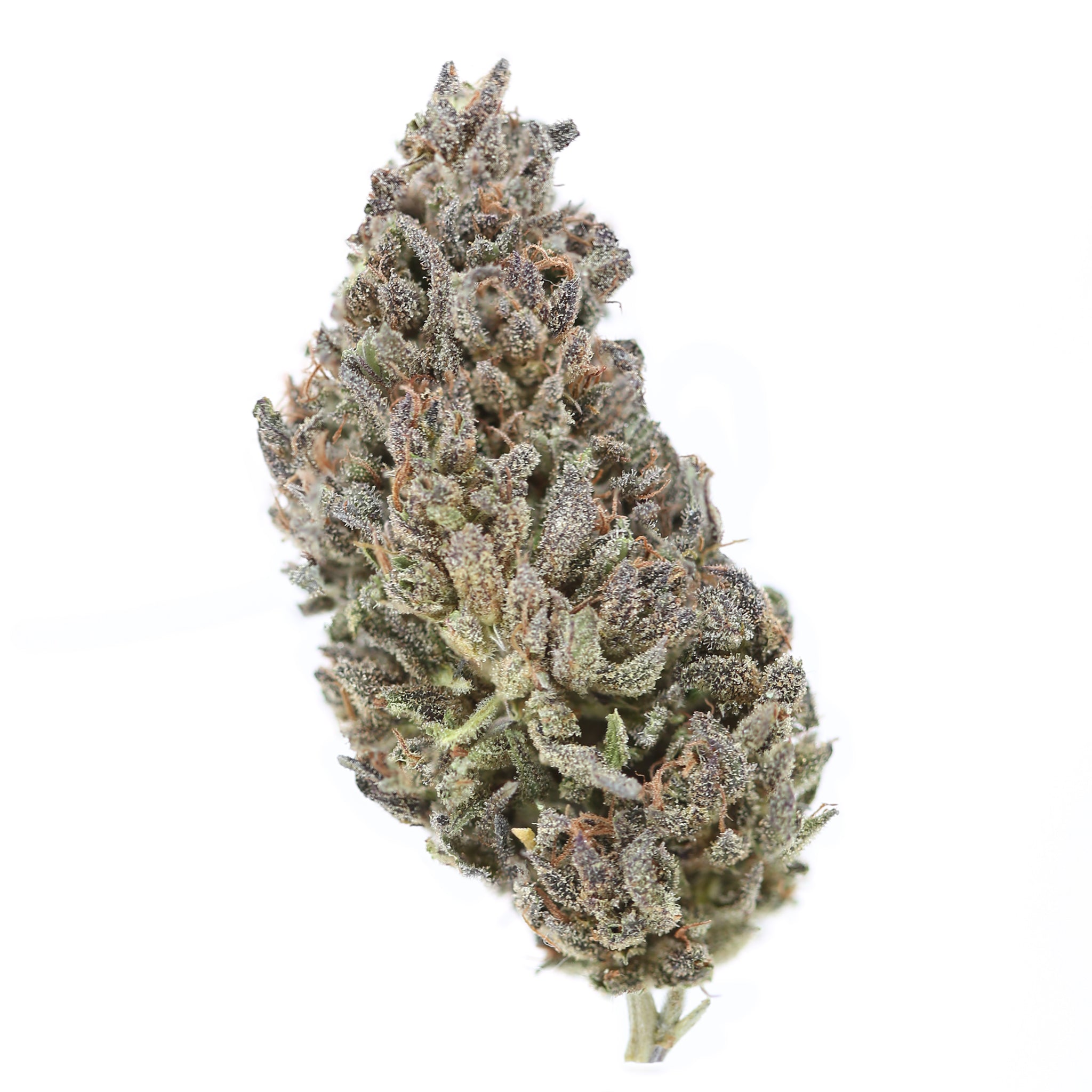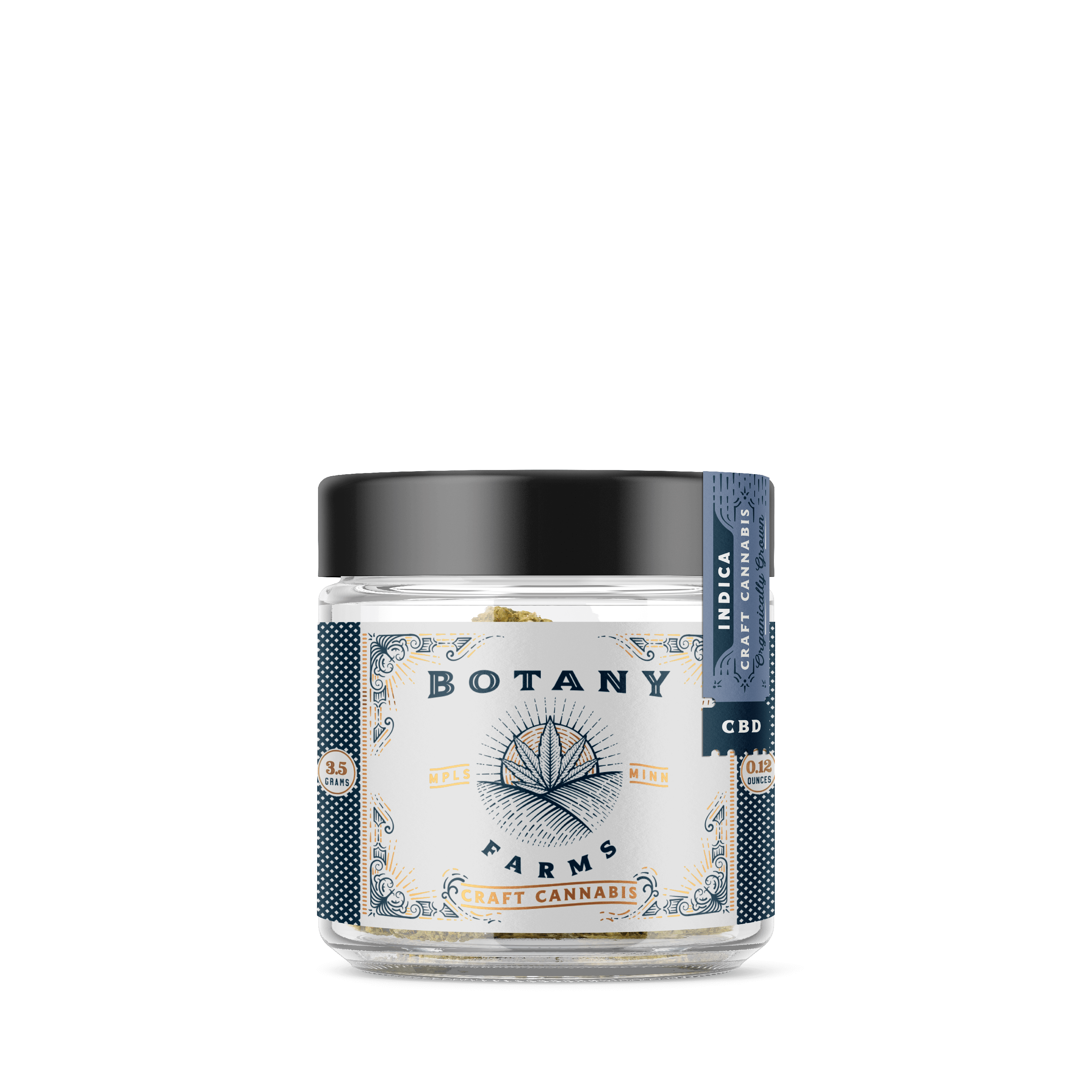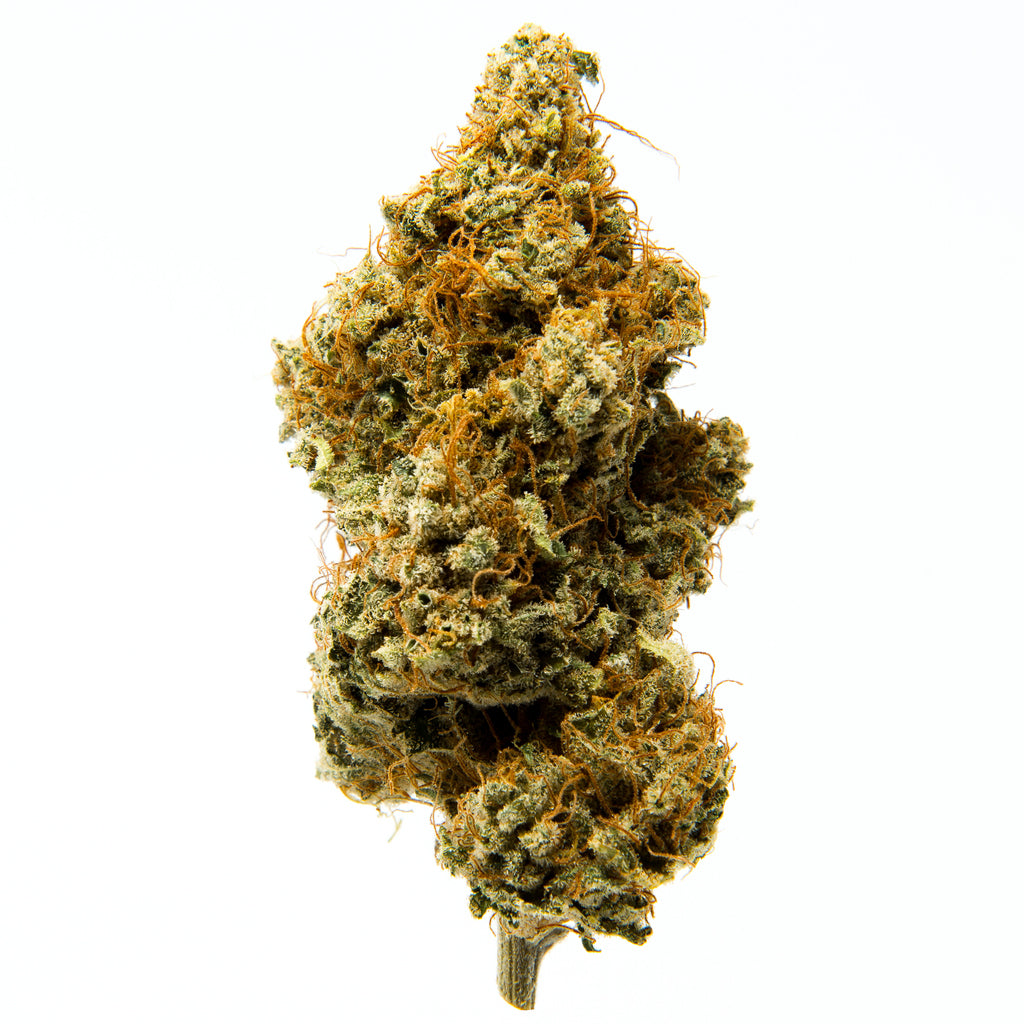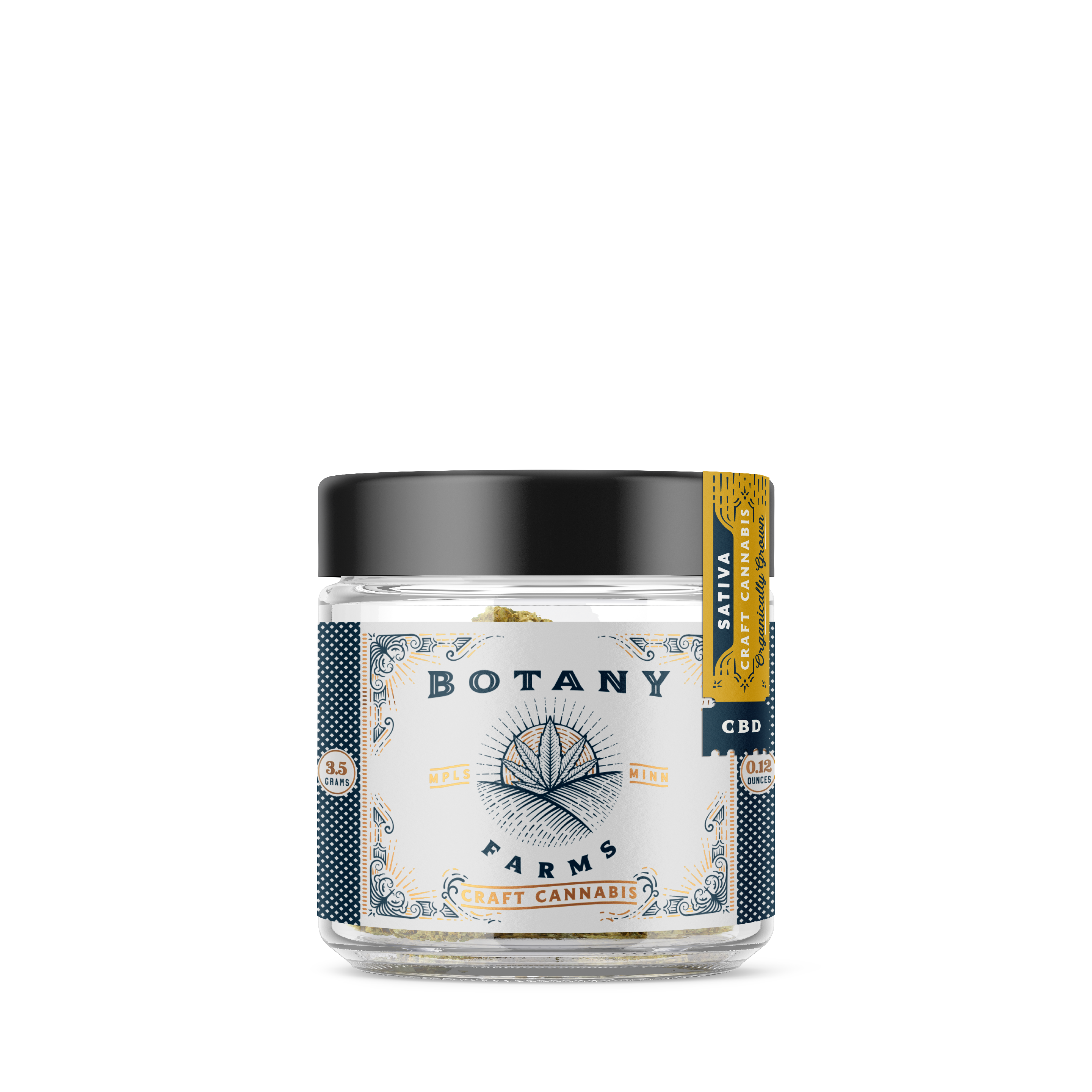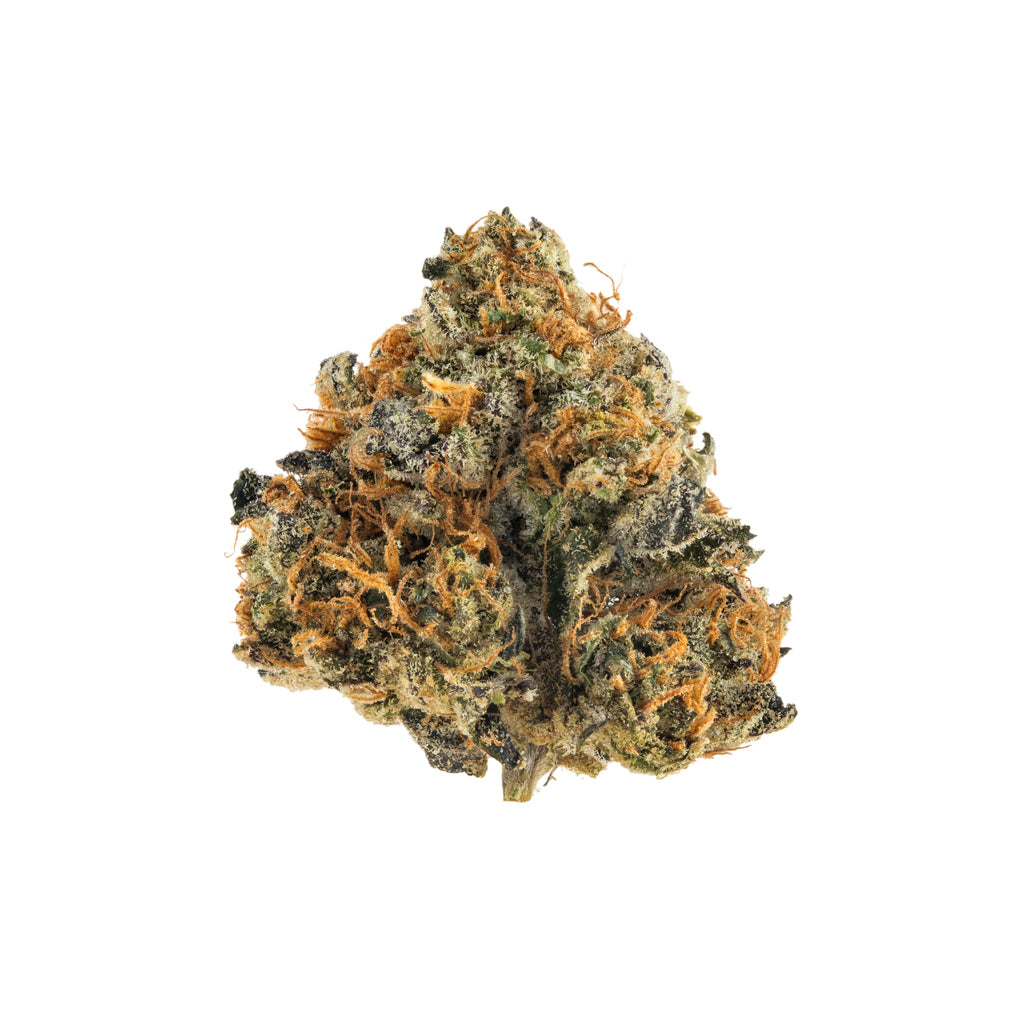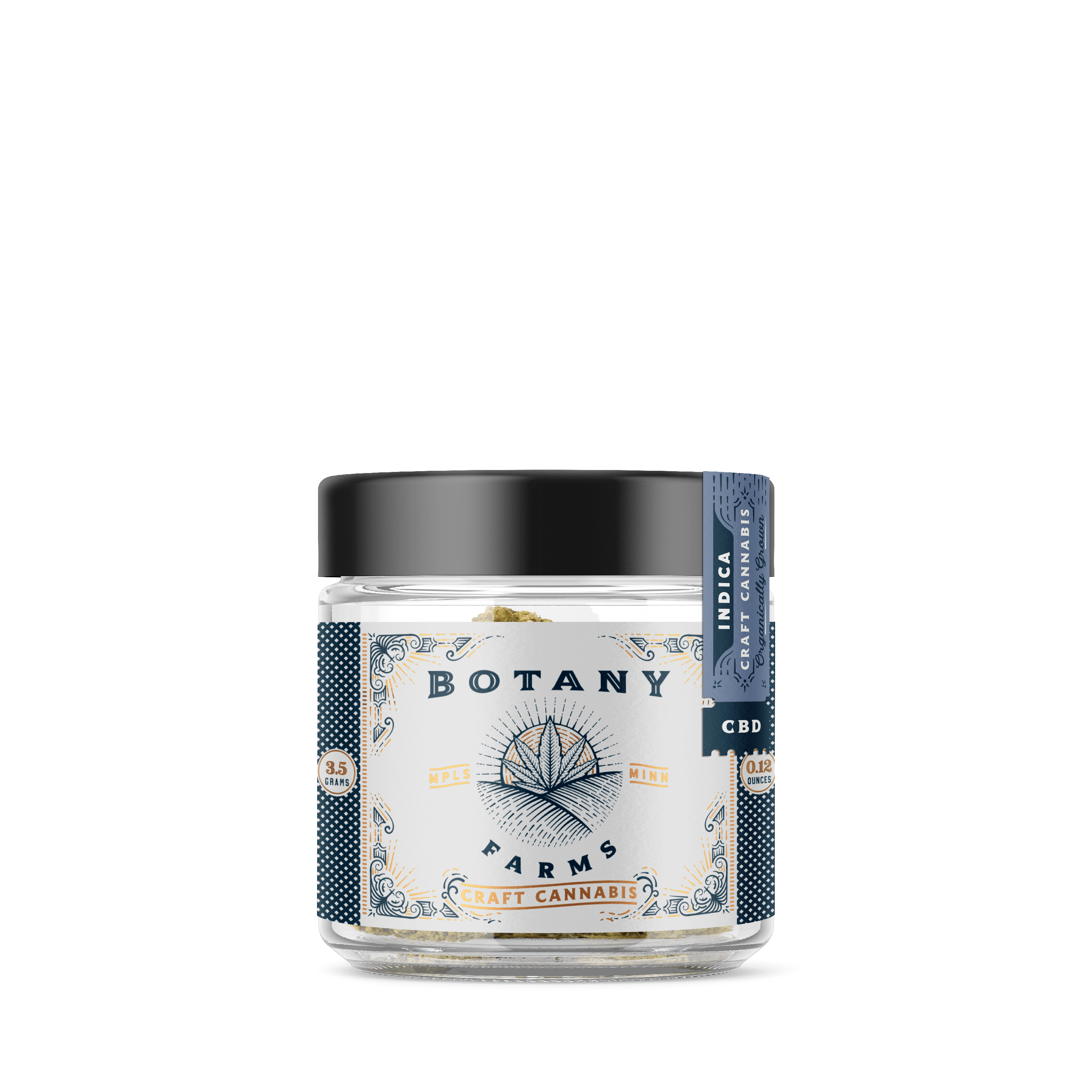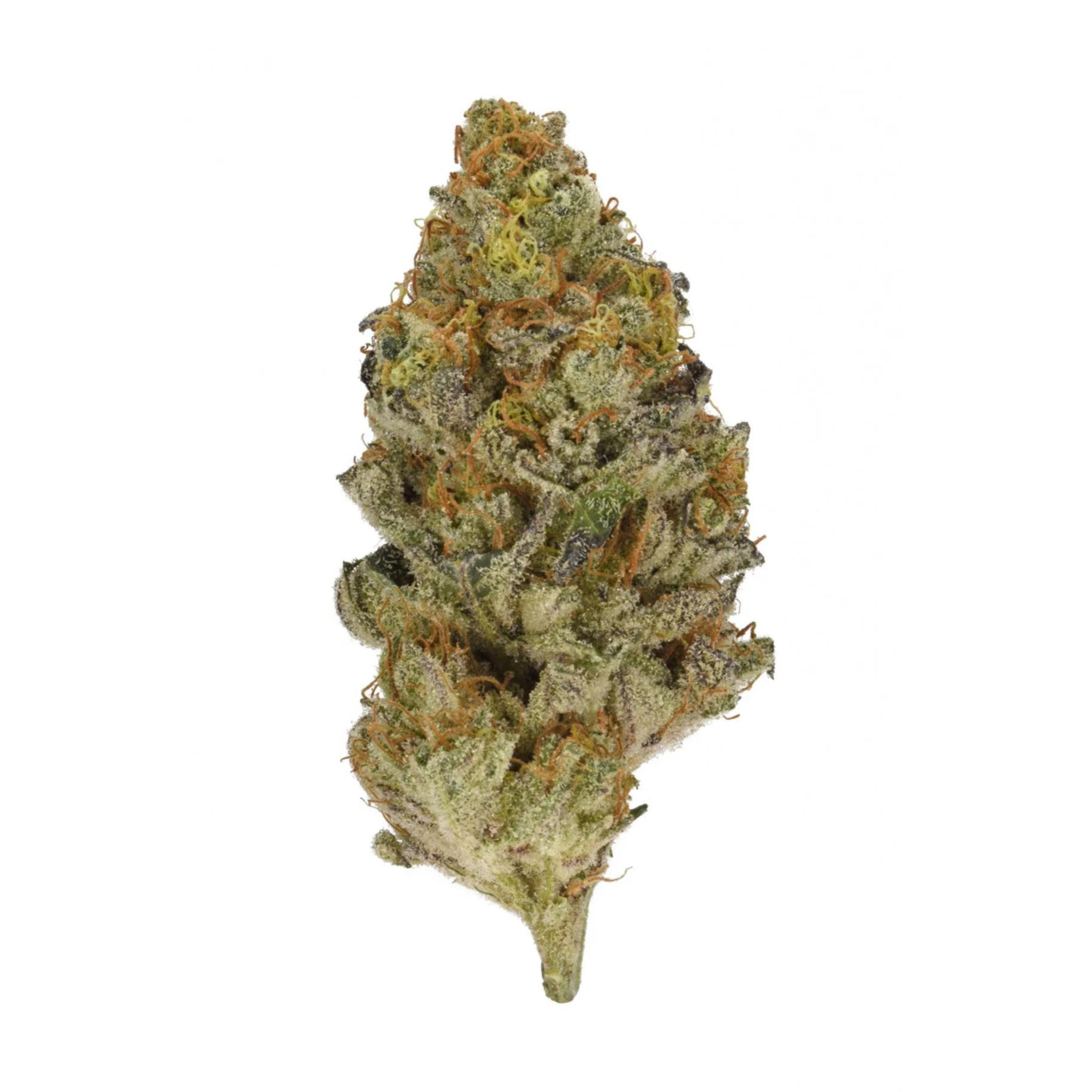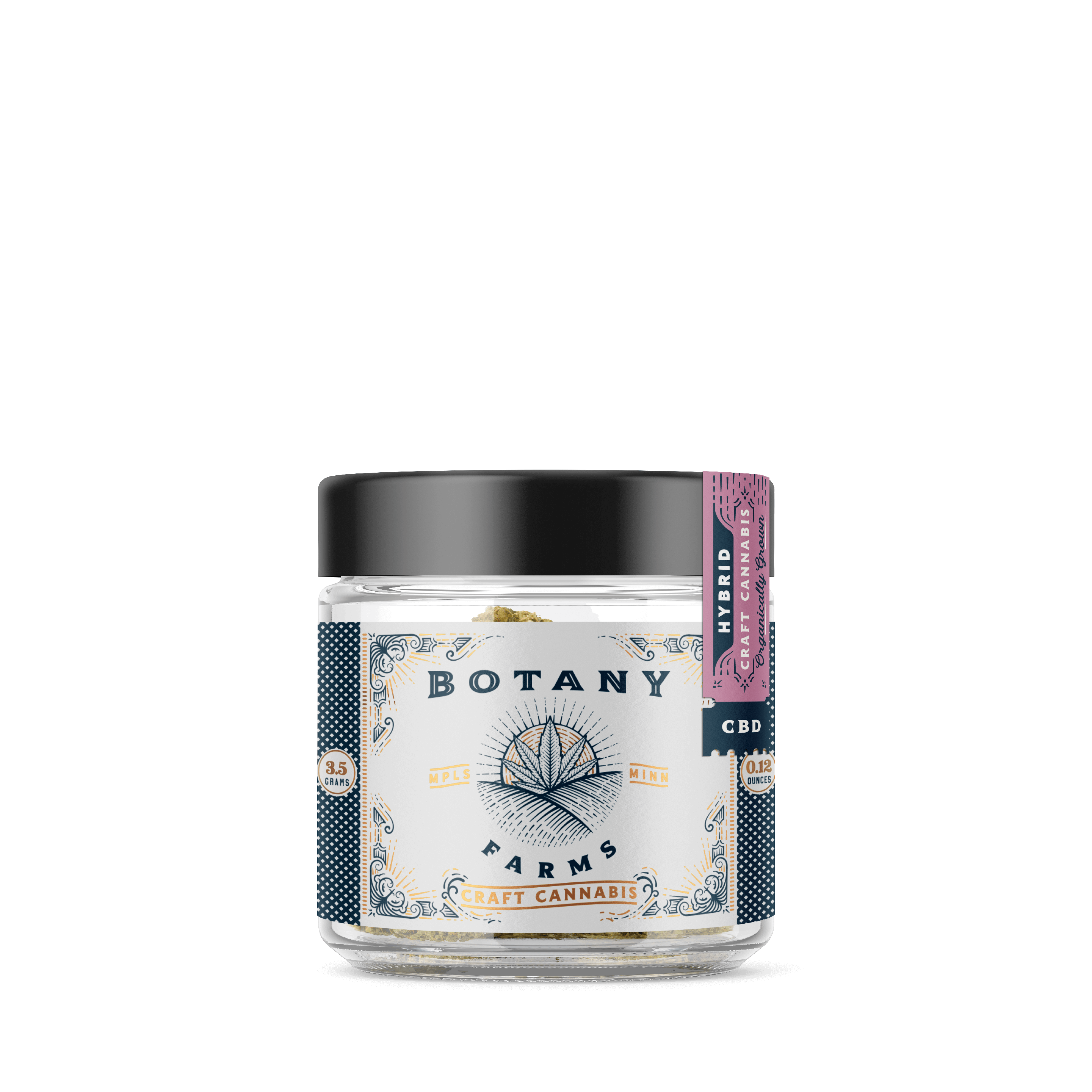- Key Takeaways
- What is the THCa Cannabinoid?
- How Does THCa Work?
- What Are the Effects of THCa?
- What Does THCa Do to the Brain?
- Is THCa the Same as Delta-9?
- What Are the Potential Benefits of THCa?
- What Are Some of the Potential Side Effects of THCa?
- THCa vs CBD: How Do They Compare?
- Does THCa Work More in the Brain Than CBD?
- Final Thoughts
- THCa: Frequently Asked Questions
There are currently over 113 different known cannabinoids, with THCa being just one of them. Yes, THCa is closely related to Delta-9 THC, but they're not quite the same thing. Without THCa you wouldn't have THC, but the former appears to be completely non-psychoactive, whereas the latter is what gets you high.
However, just because THCa does not appear to have any intoxicating effects does not mean that it does not have potential benefits or any effects on the brain whatsoever. Although there is more research required on this front, there are some preliminary indications that THCa may have various interactions in the brain and produce several effects on both the mind and body.
Today, we want to find out what exactly THCa is, how it works in the body and mind, what its effects are, what makes it different from Delta-9 THC, and so much more. By the end of this article, you should be an expert on what THCa is and How it works in your brain.
Key Takeaways
-
This article explores how THCa, otherwise known as Tetrahydrocannabinolic acid, interacts with the brain, mainly its potential neuroprotective properties.
Due to how THC interacts with your cannabinoid receptors, although it does not produce a notable high, it can have a variety of other benefits, all of which we will take a closer look at today.
Take a look at this article to find out what makes THCa different from THCv.
What is the THCa Cannabinoid?
THCa, otherwise known as Tetrahydrocannabinolic acid is the acidic version or acidic precursor to Delta-9 THC. THCa starts out as a CBGa, which is known as the mother of all cannabinoids. Thanks to various enzymes contained in hemp and cannabis plants, CBGa then turns into one of three major precursors, with these being CBDa, CBCa, and THCa.
THCa on its own, due to its chemical structure, is not known for having a strong affinity to bind with cannabinoid receptors, particularly with CB1 receptors.
This is thought to be the reason why THCa does generally not produce any intoxicating or psychoactive effects. It is the interaction with the CB1 receptors, mainly located in the brain, with Delta-9 THC, that produces a notable high.
Although THCa does not get you high, as we said, regular Delta-9 THC would not exist without it, and this is because, through a process known as decarboxylation, which is the application of heat, THCa turns into Delta-9 THC. It is interesting to note that all it takes is the application of some heat to turn a non-psychoactive substance into a psychoactive one.
Furthermore, thanks to the 2018 Farm Bill, at this time, THCa, as long as it does not contain high levels of Delta-9 THC, is considered legal at a federal level.
Interestingly however is that products that contain over 0.3% Delta-9 THC are not considered legal at a federal level. The fact that the only thing separating the legal status of these two types of THC is decarboxylation often causes a lot of debate in the legislative world.
How Does THCa Work?
Since we've already mentioned how THCa is not psychoactive or intoxicated, let's discuss how it does not work in the brain. Generally speaking, cannabinoids such as Delta-9 THC interact with your cannabinoid system, particularly your CB1 and CB2 cannabinoid receptors.
Delta-9 THC for instance interacts with both of these receptors, with the CB1 receptors being thought to be mainly responsible for the high that you feel, as well as feelings of euphoria, possibly alleviating stress, depression, and anxiety.
However, due to the lack of interaction of THCa with your CB1 receptors, it generally does not produce any kind of notable high, feelings of euphoria, and is usually not known for alleviating symptoms associated with anxiety, depression, and stress.
On the other hand, it is assumed that THCa interacts more with your CB2 receptors, which are located mainly in your central nervous system. Therefore, on this front, THCa shares some similarities with Delta-9 THC, because both are thought to have a relatively strong affinity to bind with CB2 receptors, which is where all of the potential benefits for your body come from, as well as some related to your mind.
It is thought that THCa has the ability to cross into the central nervous system through the blood-brain barrier, therefore producing a variety of potential benefits, with one of them being the possibility to increase or maintain brain health, especially where neurodegenerative diseases are concerned. This is because THCa may function as an antioxidant and anti-inflammatory, both in the brain and in the rest of the body.
Remember that many CB2 receptors are also located in your immune system, which is important to keep in mind for the section where we discussed the potential benefits of THCa further below.
What Are the Effects of THCa?
The bottom line here is that if you are looking to get high, THCa is not the cannabinoid to go with, because as mentioned above, its relatively weak affinity to bind with CB1 receptors results in a total lack of psychoactivity or intoxicating effects. If you would like to feel an effect, check out our Botany Farms Nano Delta-9 Pink Lemonade Microdose Gummies.
However, just because it does not get you high does not mean that this cannabinoid does not have potential benefits. Due to the way in which it interacts with your CB2 receptors, your immune system, as well as other systems in your body, it does have a variety of potential benefits, which we will discuss further below.
What Does THCa Do to the Brain?
Although THCa may not affect your brain in the same way that Delta-9 THC does, in terms of making you feel high, and euphoric, and possibly relieving symptoms associated with stress and depression, it is thought to still have a variety of effects.
First and foremost, THCa is thought to be an anti-inflammatory and antioxidant agent, which results in having potential neuroprotective properties for your brain. In simplest terms, this means that THCa may be able to help prevent or alleviate symptoms associated with various neurodegenerative diseases such as Huntington's disease, ALS, and Alzheimer's disease.
Thanks to how THCa interacts with the brain, mainly due to its potential antioxidant, anti-inflammatory, and neuroprotective properties, it may also help improve, or at least prevent cognitive function from declining, especially when related to memory and other aspects of cognition.
According to research, THCa may also interact with PPARγ, or Peroxisome Proliferator-Activated Receptor–γ, another type of receptor that can have various effects on the mind and body. This study showed that by interacting with the PPAR receptors, THCa was potentially able to reduce the number of inflammatory markers in the brain.
It also showed potential to prevent cytotoxicity in the brain, which has to do with its possible anti-inflammatory and antioxidant properties. In simplest terms, this piece of research concludes that THCa has neuroprotective properties that may be beneficial for treating a variety of neuroinflammatory and neurodegenerative diseases.
Is THCa the Same as Delta-9?
Although the two are closely related, THCa and Delta-9 THC are not quite the same things. As we mentioned before, THC a is the acidic precursor to Delta-9 THC. THCa has a specific chemical structure that contains an additional carboxyl group or carboxyl chain, which is actually the reason why it is thought to not have a strong affinity for binding with your CB1 receptors.
There is something about that extra carboxyl group that prevents it from interacting with your CB1 receptors. However, through a chemical change known as decarboxylation, which occurs when some heat is applied to THCa, that extra carboxyl group disappears.
Once that extra carboxyl group disappears, the chemical structure of the cannabinoid is effectively changed into Delta-9 THC. The removal of that extra carboxyl group allows Delta-9 THC to then interact with your CB1 receptors, therefore producing a notable psychoactive effect.
This is perhaps the biggest difference between these two cannabinoids, that THCa does not have any psychoactive effects, whereas Delta-9 THC does. If you would like to get high, we recommend taking a look at our own Botany Farms Blue Raspberry Delta-9 Gummies, or these best-selling Mixed Flavor Delta-9 Gummies.
What Are the Potential Benefits of THCa?
Thanks to the way in which THCa is thought to interact with your body, particularly your CB2 receptors, as well as various other systems and receptors, it may have a variety of potential benefits.
Analgesic
It is believed that (just like Delta-9 THC) THCa may also produce an analgesic effect, which means that it could act as a painkiller. Analgesic agents block the brain from receiving pain signals from your nerves, therefore reducing your overall perception of pain.
Antiemetic
THCa is also thought to be an antiemetic agent, which means that it can help prevent or reduce nausea and vomiting. There are actually various studies which indicate this to be the case. This can have potential benefits for people suffering from chronic nausea due to various conditions or medications.
Anti-Inflammatory
THCa also has the potential to act as a powerful anti-inflammatory agent, mainly by reducing the number of pro-inflammatory cytokines in the body.
The reduction of inflammation can have benefits all across the body, ranging from local inflammation and pain, such as that caused by arthritis, all the way to potentially reducing inflammation in the brain, which is why it may also have neuroprotective properties.
Here we have a study that indicates that THCa can have beneficial anti-inflammatory effects on the colon, and may therefore be able to help alleviate symptoms associated with irritable bowel syndrome and other types of chronic gastrointestinal upset.
Anti-Insomnia
THCa may also be able to help with sleep, although realistically the sleep benefits are likely much greater once THCa is converted into Delta-9 THC through decarboxylation.
Delta-9 THC is thought to be a powerful sedative and a calming agent, which can therefore help you get a good night's sleep.
Anti-Proliferative
There are some studies that show that THCa may have anti-proliferative, anti-angiogenic, and pro-apoptotic benefits for the human body. This means that THCa may be able to prevent or reverse the growth of malignant cells, mainly related to cancer, and potentially even kill malignant cells.
Antispasmodic
It is also believed that THCa may also have antispasmodic benefits, which means that it may be able to help prevent muscle spasms, and even seizures from occurring.
Modulates Immune System
It may also be the case that THCa modulates the immune system. There are some indications that THCa may somewhat suppress the immune system at times, which is one of the reasons why it may have anti-inflammatory effects. It may have the potential to stop an overactive immune system.
Neuroprotective
As we discussed above in great detail, THCa may also have a variety of neuroprotective properties that can help protect you from narrow degenerative and neuroinflammatory diseases. This is a cannabinoid that has very real potential to keep your brain in good health.
What Are Some of the Potential Side Effects of THCa?
Although there is more research required on this front, any side effects generally associated with THCa are usually rare and mild.
However, there are some instances where people have suffered side effects, which include, but may not be limited to fatigue, dizziness, dry mouth, red eyes, and increased heart rate.
That said, according to anecdotal evidence and firsthand accounts, the side effects associated with THCa are usually much rarer and milder than with regular Delta-9 THC.
THCa vs CBD: How Do They Compare?
In terms of their chemical structure, they are totally different compounds, but in terms of their effects, they share a lot of similarities.
Neither of these cannabinoids is known for binding with the cannabinoid receptors in your brain, so they both don't produce a notable high.
However, they are also both thought to have positive effects on various health-related issues in the human body, with inflammation, nausea, insomnia, and pain being just some of them.
Does THCa Work More in the Brain Than CBD?
Both of these cannabinoids are thought to have neuroprotective properties and work in the brain in various ways, although which one works more in the brain is not yet known. When it comes down to it, both have possible benefits that you should probably try to reap.
Final Thoughts
What it all comes down to here is that THCa has some very real potential benefits, especially as far as the health and longevity of your brain and cognitive functions are concerned. If you'd like to try some THCa for yourself, check out these awesome high THCa hemp strains.
THCa: Frequently Asked Questions
Let's quickly go over some of your most frequently asked questions about the THCa cannabinoid.
Does THCa Convert Into Delta-9?
Yes, THCa converts into Delta-9 THC through a process known as decarboxylation, which effectively removes the extra carboxyl chain.
Is THCa Stronger Than Delta-9?
If we are talking about potency in terms of their psychoactive effect, THCa is not stronger than Delta-9 THC, as the former generally does not produce a psychoactive effect, whereas the latter does.
Is THCa the Same as Delta-9?
No, THCa is not the same as Delta-9 THC, although the former turns into the latter.
Difference Between THCa and Delta-9
The main difference is that the Delta-9 THC chemical structure no longer contains that extra carboxyl group, which therefore allows for an increased ability to bind with your CB1 receptors, ultimately resulting in the ability of Delta-9 THC to produce a psychoactive high.
